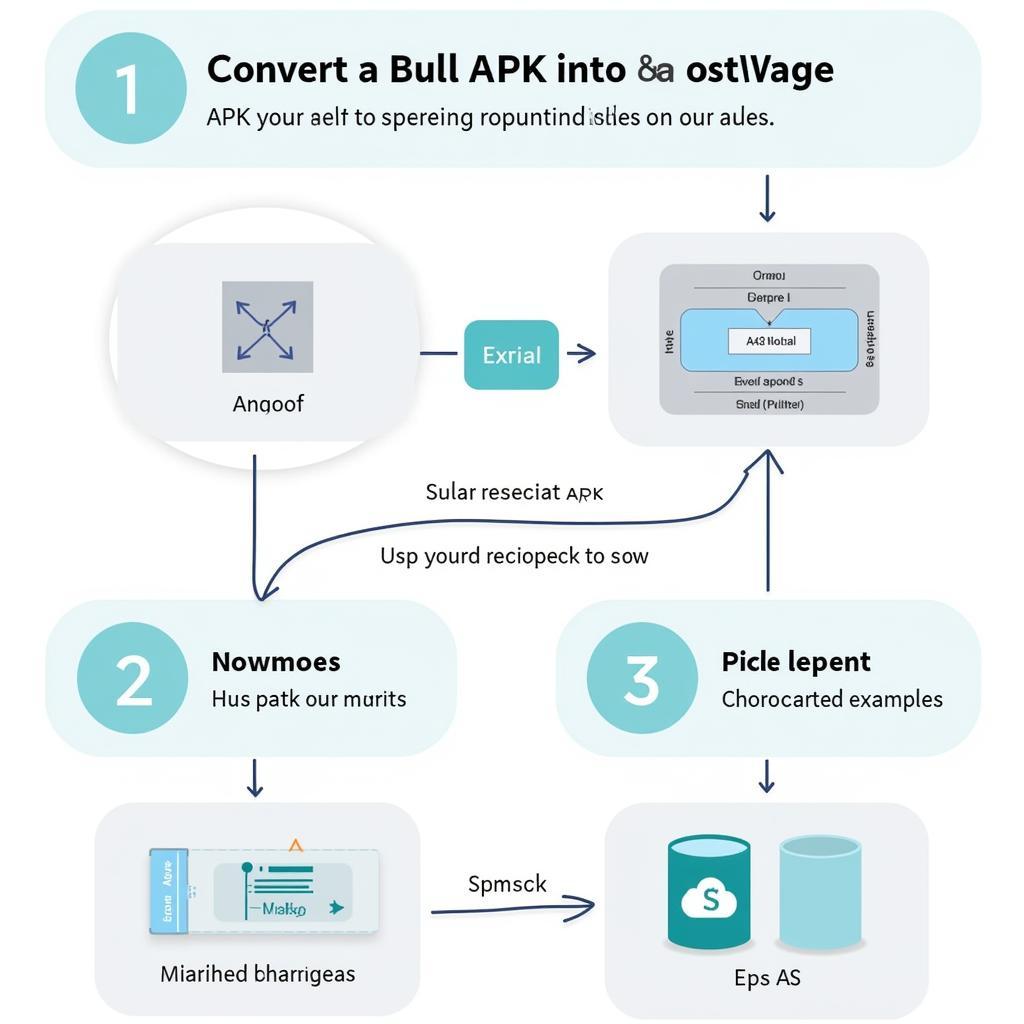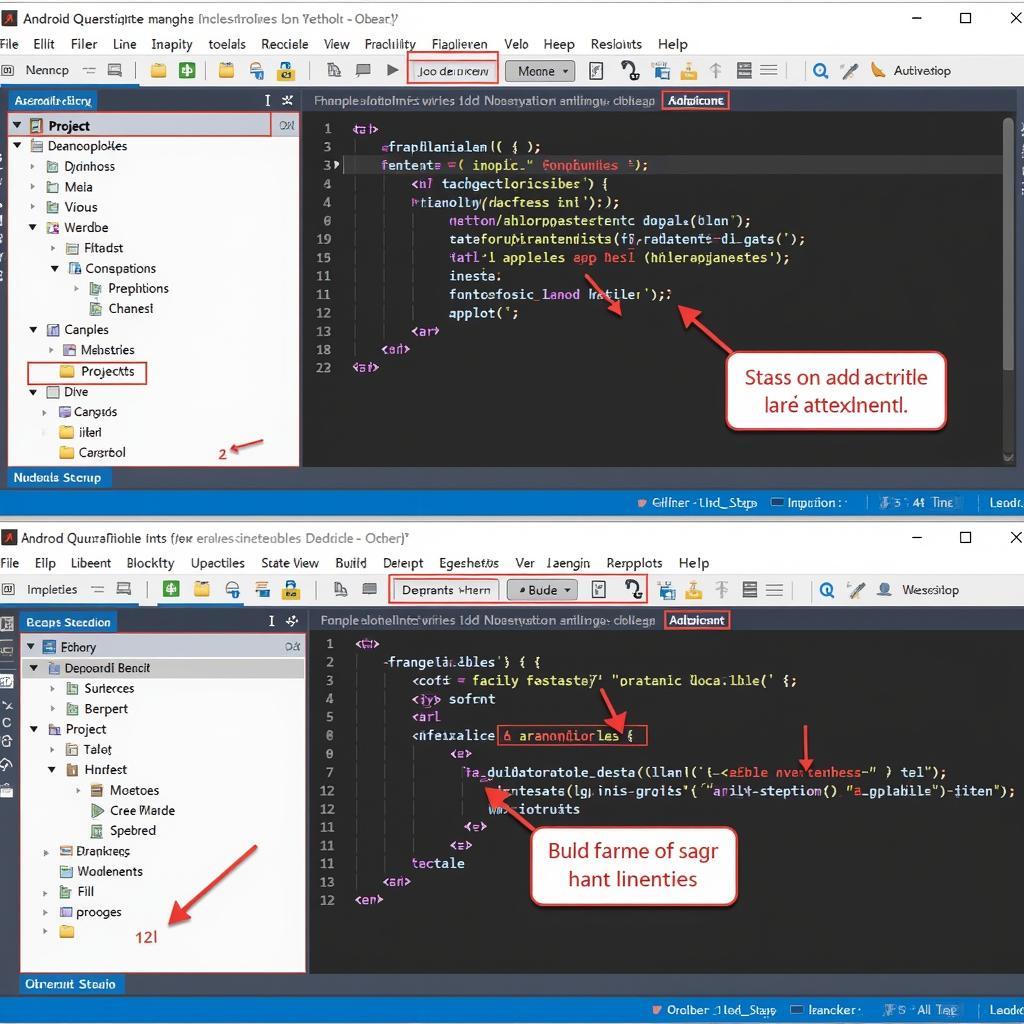Delving into the world of Android development, you’ll often encounter the terms “APK” and “SDK.” While seemingly distinct, understanding their relationship, particularly how to convert a build APK to SDK, can significantly streamline your development workflow. This guide provides a deep dive into the process, benefits, and potential challenges of converting your APK into a robust and accessible SDK.
Unpacking the Fundamentals: APK vs. SDK
Before we jump into the conversion process, let’s clarify the fundamental difference between an APK and an SDK.
- APK (Android Package Kit): The APK is the final, packaged form of an Android application ready for distribution and installation on Android devices. It bundles all the necessary components like code (DEX files), resources (images, layouts), and the manifest file, making it a self-contained unit for app deployment.
- SDK (Software Development Kit): The SDK, on the other hand, is a toolbox for developers. It provides a set of tools, libraries, documentation, code samples, and processes that facilitate the creation of applications for a specific platform, in this case, Android.
Essentially, an APK is the end product for users, while an SDK provides developers with the building blocks to create such products.
Why Convert Build APK to SDK?
Converting your existing APK into an SDK opens up a realm of possibilities, offering benefits such as:
- Code Reusability: Transform your app’s core functionality into reusable components, saving time and effort in future projects or when sharing code across teams.
- Modular Architecture: Decoupling functionalities into an SDK promotes a modular design approach. This leads to easier maintenance, updates, and independent testing of individual components.
- Third-Party Integration: Create an SDK to offer specific features of your application to other developers, opening up potential revenue streams or collaborations.
- Improved Development Workflow: By providing a pre-packaged set of tools and functionalities, you simplify the integration process for other developers, fostering wider adoption of your technology.
 SDK Conversion Process
SDK Conversion Process
How to Convert Build APK to SDK
The process of converting an APK to an SDK is not about direct transformation but rather about extracting the core logic and packaging it in a developer-friendly format. Here’s a breakdown of the steps:
- Identify Core Components: Analyze your APK and single out the functionalities you want to offer through the SDK. This might include specific algorithms, UI elements, or data processing modules.
- Extract and Refactor Code: Extract the identified code sections from your APK. Refactor the code to ensure it’s modular, well-documented, and independent of any application-specific dependencies.
- Create a Library Module: Within your Android development environment (like Android Studio), create a new library module. This module will house the extracted and refactored code, forming the heart of your SDK.
- Handle Dependencies: If your extracted code relies on external libraries, ensure these are correctly included in your library module’s build configuration (usually the
build.gradlefile). - Thorough Testing: Rigorously test your SDK to guarantee its functionality and stability. Employ unit tests, integration tests, and real-world use-case scenarios to cover all aspects of your SDK’s intended use.
- Package Your SDK: Bundle your library module, along with comprehensive documentation, code samples, and any necessary resources, into a distributable format. This could be an
.aar(Android Archive) file or a more traditional.jarfile depending on your SDK’s complexity and dependencies.
 Creating an SDK in Android Studio
Creating an SDK in Android Studio
Navigating Potential Challenges
While converting your APK to an SDK offers compelling advantages, it’s important to acknowledge potential hurdles:
- Abstraction Complexity: Achieving the right level of abstraction to ensure your SDK remains flexible yet powerful can be challenging. Careful design choices are critical for wider adoption.
- Maintenance Overhead: Releasing an SDK demands ongoing maintenance, updates, and potentially version management to ensure compatibility with different Android versions and devices.
- Security Concerns: Thoroughly address security vulnerabilities within your SDK’s codebase to protect both your intellectual property and the integrity of applications using it.
Conclusion: Empowering Developers with Your SDK
Converting your build APK into a well-structured SDK can be a strategic move for any Android developer. By providing reusable components, you contribute to a more efficient and collaborative development ecosystem. While the process requires careful planning and execution, the potential benefits, from code reusability to opening up new opportunities, make it a worthwhile endeavor.
Need help navigating the world of Android development or have a brilliant app idea you want to bring to life? Contact us!
Phone: +84977693168
Email: [email protected]
Address: 219 Đồng Đăng, Việt Hưng, Hạ Long, Quảng Ninh 200000, Việt Nam.